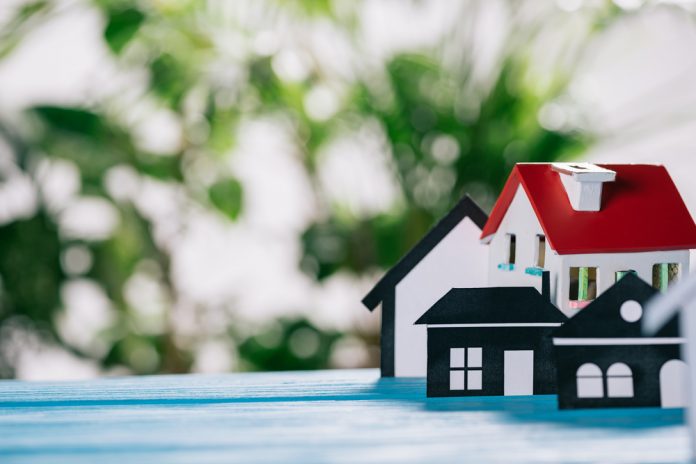When you are planning a real estate investment, there are many important factors to take into consideration. From location to financing, these factors all play a part in making the investment profitable. Whether you are buying an existing property or building a new one, it is wise to pay close attention to these areas. David Ebrahimzadeh of Corniche Capital explains the six top factors that you should address before making an investment in real estate.
1. Location
Location is widely known to be a major factor in whether an investment will be profitable. While a quality property in an inconvenient or distressed location may be a good investment, it is better to buy a property in the best neighborhood you can afford.
Some of the considerations that go into location choice for a residential property include proximity to green space, scenic views, amenities like shopping and schools, and the status of the neighborhood. Commercial properties have an advantage if they are placed near warehouses, markets, freeways, and transport hubs. Tax-exempt areas or those carrying special state or city incentives are another area where location pays.
When considering any location, it is a good idea to perform an analysis regarding the future of the property and the surrounding land. Real estate is often a long-term investment, and the quiet neighborhood at the edge of town may become built up if there are many commercial land deals happening in the area.
2. Valuation
Real estate valuation is important for a variety of reasons. Everything from securing financing to taxation depends on the valuation of the property. Factors like insurance premiums and listing prices are also affected by valuation.
In order to determine whether the property has a fair and accurate valuation, there are a variety of approaches you can take. Comparing the sale price with similar properties will give you a good idea of how much you should be paying. For new construction, look into the cost of the land and the cost of building it out. Be sure to consider depreciation as well. For rentals and leasing properties, look into the monthly income you can expect to make.
3. Purpose of Investment
When you are thinking about making a real estate investment, you should consider your reasons for making the deal. If you buy a property for your own use, you will save on rentals and enjoy value appreciation.
If you choose to buy the property and lease it, you will receive a regular monthly income. One drawback to this situation is that you will have to either take on the responsibilities of a landlord or hire a property manager to do it for you.
Buying the property and selling it in the short term is a good way to make a small to medium profit on the sale. One good strategy is to buy a building that is under construction and sell it at a profit when it is completed.
Long-term investments should be examined carefully. Since real estate is an area where liquidity is low and risks can be high, it is vital to make sure that you are buying the right property. If you do buy the right property, you will enjoy excellent long-term returns. A long-term real estate investment is a good idea when you want to save for a child’s college tuition or retirement expenses.
4. Profit Opportunities and Cash Flow
You will need to determine whether your new property has a positive cash flow before investing. This can be more challenging if you are interested in new construction since you cannot always be sure that the building will be occupied and successful.
Look into the cash flow you could receive as rental income. Long-term price appreciation will lead to an increase in the property’s value. Over the long term, you may see a benefit from depreciation as well, especially where taxes are concerned.
Before the sale, you should perform a cost-benefit analysis. You will want to find out whether you will make more money if you renovate the property versus leaving it as-is. You should also do a cost-benefit analysis of any loans or mortgages you take out.
5. Loans and Financing
It may seem tempting to take out a loan to buy your property, but it is wise to be cautious. When you take out a loan, you are effectively promising your future income in return for current benefits. Interest will accumulate over the years. If there is any way that you can buy the property without getting a loan, that may be the wisest course.
When looking into a loan, you should consider the type of mortgage you want to receive. You may be able to get a fixed-rate mortgage, an interest-only loan, or a zero down payment loan. All of these loans have their advantages and disadvantages.
It is also a good idea to shop around for a loan. You can bargain for a more advantageous deal, just as you would if you were buying a car or another smaller investment.
6. New or Existing Property
It is smart to lay out the advantages and disadvantages of each type of property. New construction may seem attractive because it is lower-priced and modernized. The problems you may run into include increased costs, delays, and occupancy difficulties. When buying new construction, you will also need to landscape and fit the property out for utilities and other services.
Existing property is a quicker investment with fewer attendant costs. The disadvantage of buying an existing property is that it may not be as modern as a new property.
Some of the factors that you will need to take into account include the monthly expenses associated with the property. One area that is sometimes overlooked is the tax burden on the property.
You will also need to look into the current tenant if the property is leased. Find out the terms of their lease and how long they plan to be there. For residential properties, find out whether the property is rent-controlled or has any other conditions you should be aware of.
Investing with Care
When you look at these six factors, you will be able to get a better idea of the risks and benefits associated with your new investment. David Ebrahimzadeh emphasizes the importance of doing your research before buying a property of any kind.
Find a Home-Based Business to Start-Up >>> Hundreds of Business Listings.

















































